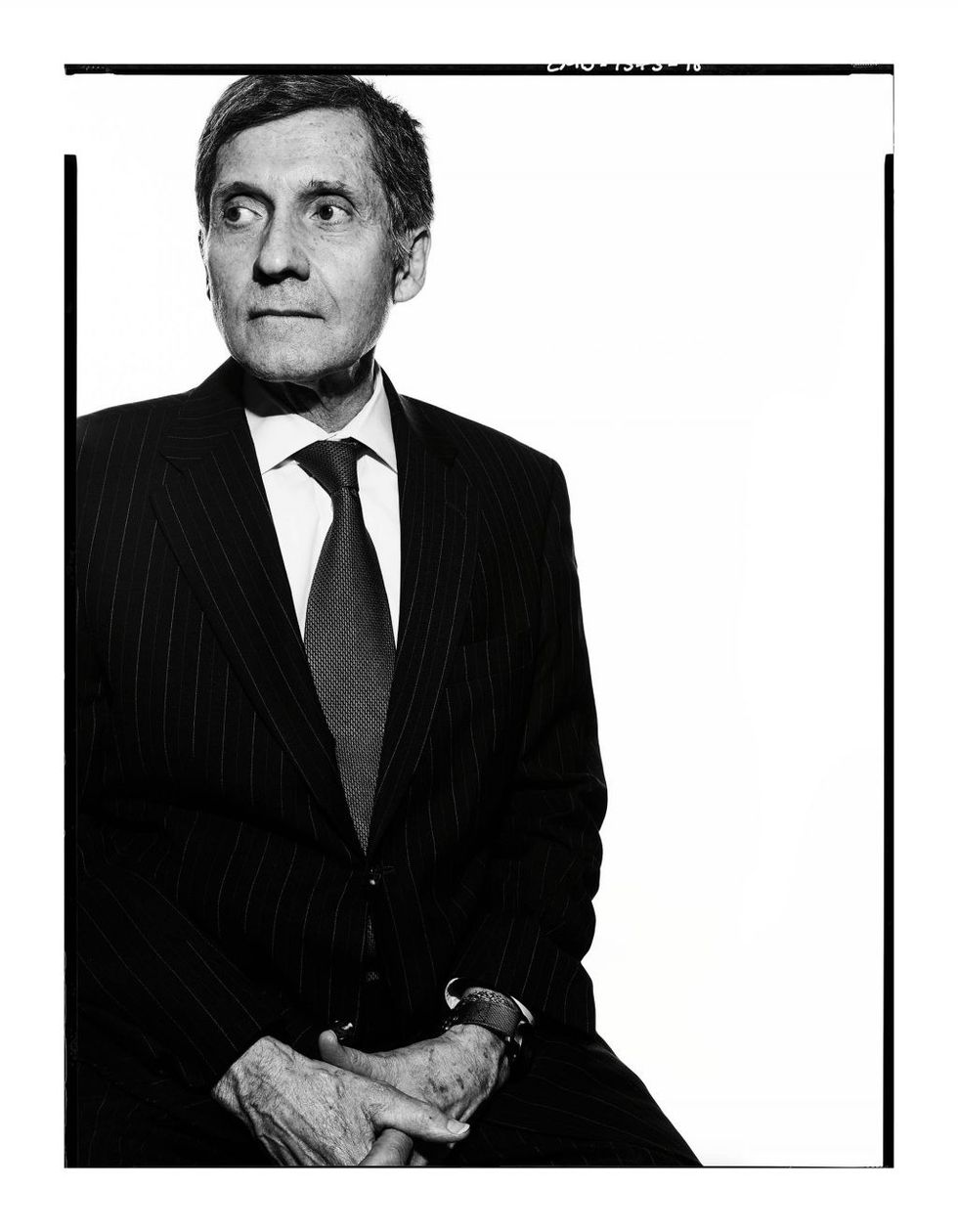The director of the Hong Kong and Macau Affairs office says the city is experiencing its worst crisis since the colony returned to China from British rule in 1997 after weeks of protests prompted by legislation that protestors believe was eroding their freedoms.
Thousands of protestors have been disrupting travel on roads and trains and hundreds of flights have been cancelled due to sick calls from air traffic controllers. Union officials said close to 350,000 workers stayed home on Monday, nearly two months after the protests first began.
The protests, which are much larger than previous protests, were initially in response to legislation that would have allowed criminal suspects to be extradited to China, signaling to many, an erosion of independence enjoyed under British rule, prior to the 1997 handover. That legislation has since been suspended, but lingering fear over the loss of certain freedoms remains.
Last week, the Chinese Foreign Ministry accused the U.S. of influencing the protests.
The Cipher Brief reached out to three China experts, including Cipher Brief expert Ambassador Joseph DeTrani, with three key questions about the protests, what they really mean and where this might be headed with authorities.
Background:
- Hong Kong was ceded to the British empire in 1841, during the 1839-1860 Opium Wars. Britain and Hong Kong signed a 99-year lease in 1898 that established the island as a British territory. Hong Kong was returned to China in 1997 and officially is recognized as the Hong Kong Special Administrative Region. It operates under the “one country, two systems” rule, which enables Hong Kong to govern itself until 2047.
- While China operates under a communist system, Hong Kong has a limited democracy. They both share the President of China as their chief of state, but they have different heads of government. Chief Executive Carrie Lam is the head of Hong Kong’s government. She has been criticized for her close ties to mainland China.
- Hong Kong relies on China for military defense—it is proscribed from having its own military—and diplomatic representation around the world. Economically, Hong Kong is seen as the gateway for doing business with mainland China.
- Hong Kong’s residents have a history of protesting perceived overreach by mainland China. In 2014, there were massive protests against a proposed reform that would have established narrow criteria for candidates to become the chief executive. Protesters felt that the reform would only allow for candidates whose interests were congruent with mainland China.
- Hong Kong residents since early June have protested the "Fugitive Offenders and Mutual Legal Assistance in Criminal Matters” extradition bill that was proposed by Lam and her council in accordance with Beijing in March 2019. The bill would require Hong Kong to turn over “fugitive offenders” to the Chinese government.
- Lam on June 15, 2019 “suspended” the bill due to the protests but has not shelved it entirely. She said that she could not withdraw the bill, “or else society will say that this bill was groundless.” Many Hong Kong residents have called for her resignation.
- The first protest was June 6 and consisted of hundreds of lawyers who wore black and marched silently. Protests since then have grown in size, with some sources claiming that two million people have taken part. The protests began peacefully yet more recently, have grown in size and scope and have been met with tear gas from police and stern warnings that there will be a police crackdown.
- Many cite a recent murder case in Taiwan for being the driving force behind the March 2019 creation of the extradition bill. On Valentine’s Day this year, Hong Kong residents Chan Tong-kai and his pregnant girlfriend Poon Hiu-wing traveled to Taiwan, where Chan is accused of murdering Poon. Chan was arrested by Hong Kong police when he returned home, but Hong Kong’s lack of an extradition law means that he cannot be forced to go to Taiwan and stand trial. He is still in Hong Kong.
Q: What should we make of the timing, size and intensity of the protests over the past two months?
Ambassador Joseph DeTrani, Former member, CIA's Senior Intelligence Service
"I'm not too surprised. The people in Hong Kong, a population of close to 7 million people, are very protective of their rights. And when China came out, working with the Chief Executive Carrie Lam in Hong Kong, about the extradition to the mainland of those accused of crimes in Hong Kong, the protests were pretty visible, and the people were very outspoken about their unhappiness with the movement of legislation. So, I'm not surprised, given the type of legislation that was being proposed. The residents of Hong Kong are committed, or at least believe the mainland should be committed to a basic law, which gives them the right to demonstrate. Certainly through 2047. 50 years. And that was put into play in 1997, when Hong Kong referred it. So I'm not overly surprised, given the issues that are on the table."
Andrew Scobell, Senior Political Scientist, RAND Corporation
"The persistence and passion of the protests speaks to the deep-seated nature of the grievances of the Hong Kong people. A large number of people in Hong Kong believe that their government isn’t listening to them and the only way to make their voices heard to get out on the streets and force them to listen. The frequent use of tear gas by police dressed in intimidating-looking riot gear only raises the level of frustration and fuels the commitment of the protestors."
Steven M. Goldstein, Sophia Smith Professor of Government, Emeritus, Smith College, Harvard University
"You really have to look at the timing in perspective. The first open demonstrations of unhappiness with the nature of Chinese rule in Hong Kong came with the umbrella movement of 2014, which were demonstrations over changes in the electoral laws."
"In 2016, the mainland dismissed certain representatives in the legislature and made illegal certain parties," says Goldstein. "And then in 2019, comes the extradition law, which is that Hong Kong citizens can be extradited for criminal proceedings on the mainland. It's been something that's been developing really over the first 10 years of this century. The other thing that's been developing slowly but surely, has been an ethnic conflict, or a conflict on the basis of ethnicity between Chinese from the mainland and Chinese of Hong Kong. The Chinese of Hong Kong have always considered themselves to be more Westernized, more sophisticated, more intellectual and a people distinct from China. And almost from the beginning in 1997 when the mainland came in, there was this clash as Hong Kong believed mainland people to be unsophisticated, un-Westernized people. And the mainland people viewed the Hong Kong people as not quite Chinese, not really members of the homeland. So, this didn't suddenly breakout. It's been evolving on the cultural front and it's been evolving on the political front over the last two decades."
Q: What is the likelihood that China will resort to more aggressive actions to control the protests and how is that likely to play out?
"China permits the Hong Kong authorities to work with the citizens of Hong Kong to resolve issues, because there are issues," says DeTrani. "It's not only a question of this legislation, it's also a question of the housing situation in Hong Kong, the cost of living in Hong Kong, elements of the disparity of wealth in Hong Kong. There are socioeconomic issues in Hong Kong that are the responsibility of the Hong Kong authorities to address. And I think, part of these demonstrations are being driven by some of those concerns, in addition to the proposed legislation. China said, "Some of these demonstrations are getting out of hand." And that's always a possibility. On the whole, these have been peaceful demonstrations. They have appeared to galvanize a cross section of the populace in Hong Kong. We're talking about not only students and academics, we're talking about those in the commercial sector who have come out to protest as well. So, I would hope China permits the authorities in Hong Kong to take responsibility to resolve these issues peacefully, through negotiations with the people of Hong Kong. There have been comments that recently came out indicating that China may have to do something. That's not necessarily the policy of Beijing and hopefully it does not become the policy. A week ago, there was a press conference in Beijing, where they made it clear that this is a Hong Kong administration responsibility. These demonstrations should be peaceful, and the issues should be addressed by the Hong Kong authorities. I found that somewhat encouraging."
Ambassador Joseph DeTrani, Former member, CIA's Senior Intelligence Service
"If the Mainland got intimately involved, and then indeed introduced People's Liberation Army assets to address these issues, that would be a very bad sign. It would be not only a bad sign for Hong Kong, but it also would be a bad sign for neighboring countries in the region certainly to include Taiwan, I think it would be a terrible message. With China pushing forward with the Belt and Road initiative, and Asian Infrastructure Investment Bank initiatives, this is not the time to be introducing military assets into Hong Kong to resolve an issue. It should be left to the Hong Kong authorities."
"There have been as many as two million people out on the streets, that's about a quarter of the population. It isn't like China. It isn't' like Tiananmen back in 1989," says Goldstein. "This would mean the Chinese moving against a very large number of people, a much larger number of people obviously then in Tiananmen. So, the logistics of that and the outcome of that are really pretty frightening. The impact on China's image in the world would also be much more than Tiananmen. To suppress Hong Kong or to use force in Hong Kong, particularly at this point, would I think, really put an end to many of China's hopes about taking part in the international system."
Steven M. Goldstein, Sophia Smith Professor of Government, Emeritus, Smith College, Harvard University
"On the other hand, Xi Jinping is a man who does not like opposition. He is now going through a period of difficulty, not only in relations with the United States, but with his own economy at home. And he would be very conscious of showing weakness not only as China's leader but as the person representing China. Can China really show weakness in the face of this kind of demonstration?"
"There was an incident a few days ago when a demonstrator threw the Chinese flag into the water. To the Chinese Mainlanders, for Hong Kong or a citizen of Hong Kong to desecrate the Chinese flag is a big deal. And the response from the mainland was to make it very clear that as far as they're concerned, this is really a domestic vote. This is an attempt to diminish the People's Republic of China by undermining rule in Hong Kong. And of course, the concern there is that this will spread to the Uyghurs, it will spread to the Tibetans and of course to Taiwan," said Goldstein.
Andrew Scobell, Senior Political Scientist, RAND Corporation
"China seems likely to continue relying on a tough law and order approach to the protests with the Hong Kong police on the front lines. The city’s police are under a lot of pressure by Hong Kong authorities to quash the protests. But the protestors have refused to be intimidated and the ongoing protests have strained the endurance and professionalism of the police on the streets. There have been lapses in discipline and instances of excessive force."
"Flashes of law enforcement frustration have only served to stoke the outrage of the protestors and broaden the sympathy for the protestors among other Hong Kong residents. The police themselves have become a target of people’s anger. And some protestors have become increasingly radicalized resorting to violence and extreme acts of civil disobedience," says Scobell. "The protests will be difficult for the authorities to end without offering at least some significant concessions. Since the leadership of the protests is highly decentralized—there is no single group of ‘ringleaders’ that police can arrest. All these dynamics also make it difficult for either side to seek compromise. Thus, it is difficult to see these protest movement winding down anytime soon."
Q: How significant is it that China has accused the U.S. of being responsible for the protests in Hong Kong?
Andrew Scobell, Senior Political Scientist, RAND Corporation
"It is significant but predictable. Beijing firmly believes that the United States is orchestrating or manipulating the Hong Kong protests to stir up trouble for China. In Beijing’s view, the protests have been instigated by a small number of troublemakers and does not enjoy widespread popular support in Hong Kong. The United States is also a convenient external scapegoat since Beijing sincerely believes it is blameless for the turmoil in Hong Kong."
Ambassador Joseph DeTrani, Former member, CIA's Senior Intelligence Service
"For China to have any officials making those accusations is unfortunate and I think it's a weak read. Accusations of that type have been used before to conceal the hands of those making them. Obviously, there's nothing to it. The U.S. would not involve itself in a domestic issue of that type. If anything, the U.S. would want to, and I think the President has made it clear, he would want to see very peaceful resolution to those issues. It's unfortunate that some would say things of that nature. And to me it's indicative of maybe trying to divert some attention from possibly other activities. Hopefully those other activities never take place."
Steven M. Goldstein, Sophia Smith Professor of Government, Emeritus, Smith College, Harvard University
"There was a claim that the CIA was paying each demonstrator 500 Hong Kong dollars. That kind of interference is I think, absurd. Interference of secret delegates to try to instigate the people of Hong Kong is absurd. But of course, the United States has made statements in the past, and is regarded by the people of Hong Kong as a representative of democratic aspirations and as a representative of the West because they see themselves as really part of the West."
"There is an act of Congress - the Hong Kong Policy Act which actually justifies American interference in Hong Kong," adds Goldstein. "It's called the United States-Hong Kong Policy Act of 1992. The basic approach of it is when it says, "not-withstanding any change in the exercise of sovereignty over Hong Kong, the laws of the United States shall continue to apply with respect to Hong Kong on or after July 1st, 1997 and in the same manner as the laws of the United States were applied with respect to Hong Kong before that date." In other words, we would continue to treat Hong Kong as Hong Kong and autonomous from China. But then the Act goes on to say that, "support for democratization is a fundamental principle of the United States' foreign policy. As such, it naturally applies to United States policy towards Hong Kong. This will remain equally true after June 30th, 1997." And then finally, in the same part of the statute, it says, "the human rights of the people of Hong Kong are of great importance to the United States and are directly relevant to United States interests in Hong Kong. A fully successful transition in the exercise of sovereignty over Hong Kong must safeguard human rights in and of themselves. Human Rights also serve as the basis for Hong Kong continued economic prosperity." And then finally, it allows the President to punish China. It says, "On or before July 1st, 1997, whenever the President determines that Hong Kong is not sufficiently autonomous to justify treatment under a particular law of the United States or any provision thereof different from that accorded to the People's Republic of China, the President may issue an executive order suspending the application of section 5221," which is that it be treated as everything else. So, the word is "sufficient autonomy." And every year, the State Department issues a report as is mandated in that law to determine whether Hong Kong has maintained sufficient autonomy. And for the last two years, the State Department report has gotten more and more qualified in terms of that sufficient autonomy. They talk about it eroding, they talk about serious problems. Take a look at the law. It does give the President considerable autonomy. Now, this President, of course, has actually chosen to not take that kind of stance. This President has used Chinese language, has called these demonstrations a riot, which is the Chinese term. He's also said it's not of concern to the United States. It's a matter between Hong Kong and China. But the law is that what happens in Hong Kong doesn't stay in Hong Kong. It is a matter of concern to the United States."
Read more in The Cipher Brief

















